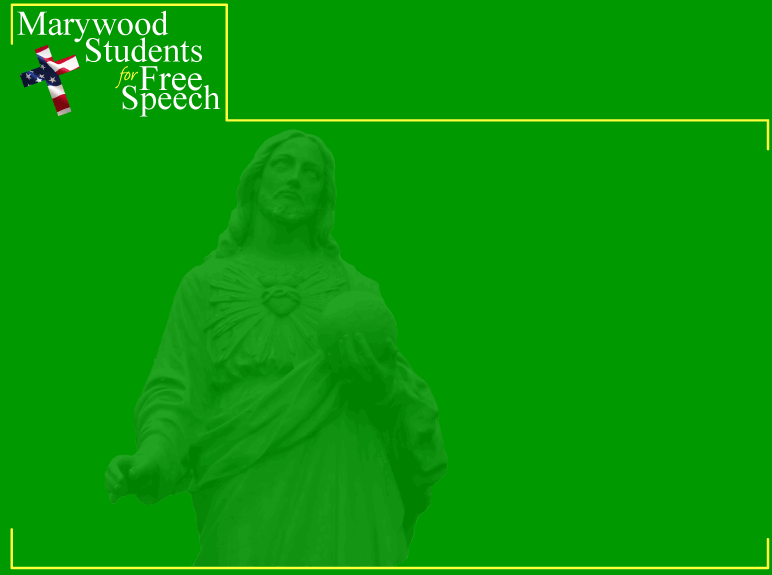We do not believe that Marywood's current problem is the result of some draconian policy or overbearing bureaucracy; rather, it comes merely from the ambiguities inherent in not officially protecting free speech. Since Marywood is a private institution, they are not required to uphold the first amendment of the US Constitution on campus. In the absence of a codified right to free speech, this means that Marywood's administration is free to set the bounds on campus discourse anyway they see fit.
So far this has resulted in only a few overt conflicts (see the history section); however, it is impossible to measure the extent to which the existence of arbitrary speech controls chills free expression on campus. Moreover, as Marywood considers an official policy to regulate the content of the personal websites of students and faculty members, clear speech protections are more necessary than ever to avoid institutional censorship.
At the same time, we are supportive of Marywood's rich catholic heritage and goal of promoting catholic social teaching within its community. Though many believe that this religious mission proscribes free speech on campus, we disagree. In fact, we think Marywood—as a catholic university—has an especially keen interest in fostering a dialogue with the wider culture. Instead of demurring from the contentious topics of the times, Marywood should be eager to tackle them within the context of catholic values by actively promoting its beliefs while allowing its students and faculty to freely argue dissenting points of view.
In this spirit, rather than trying to impose some novel new speech code with an agenda, our proposal draws from the greatest intellectual traditions of our country to provide every student and faculty member the protections of the first amendment of the US Constitution. These are the same protections that any student or faculty member could expect while having a conversation outside the courthouse in downtown Scranton, PA and nothing more. The absence of these very basic protections is simply inexplicable and unacceptable for any institution of higher learning.
Our proposal is thus very straight forward:
"Marywood University shall not make or enforce any rule subjecting any student or faculty member to disciplinary sanction solely on the basis of conduct that is speech or other communication that, when engaged in outside the Marywood campus, is protected from governmental restriction by the U.S. Constitution."
There is no reason why Marywood should continue eschew such a fundamental academic freedom. If you agree, then join us now and help us to change it!
